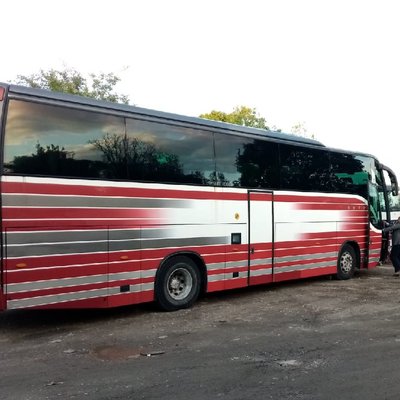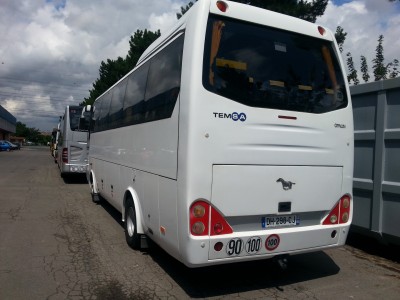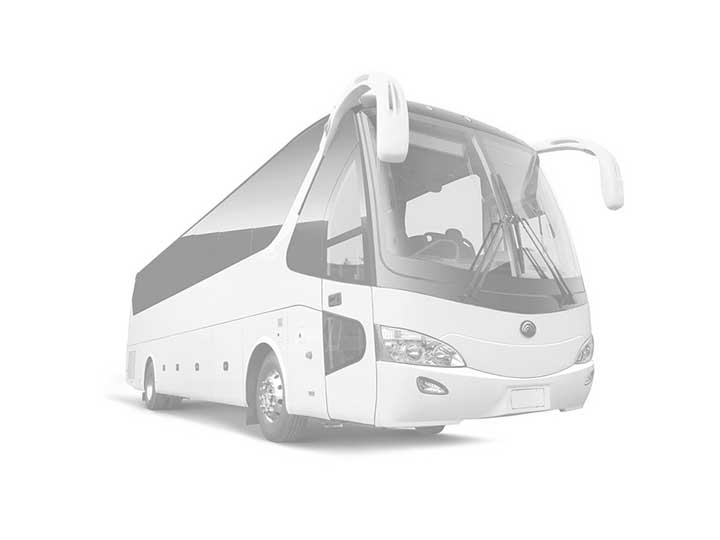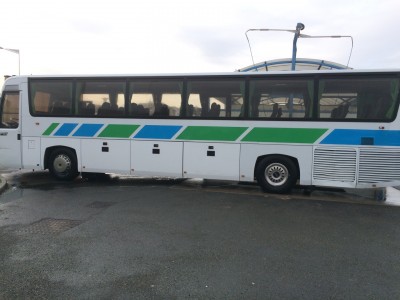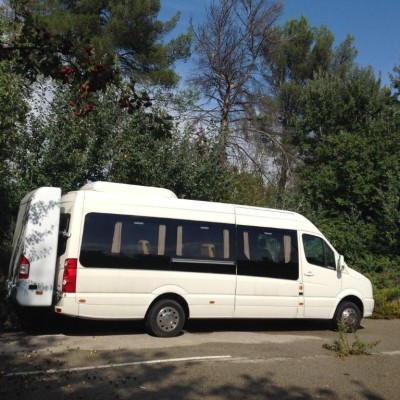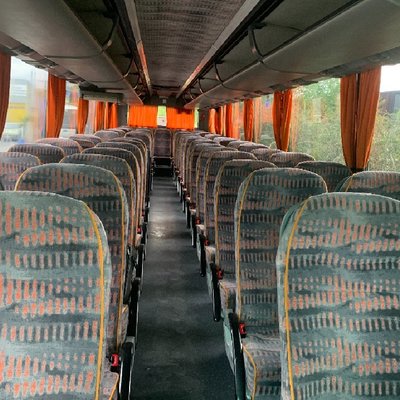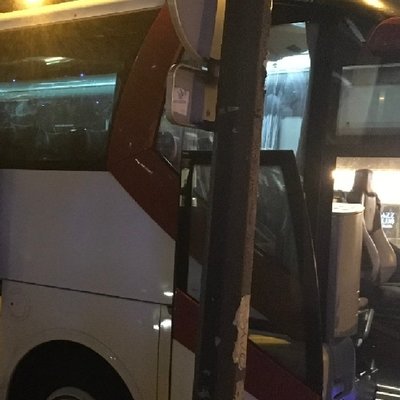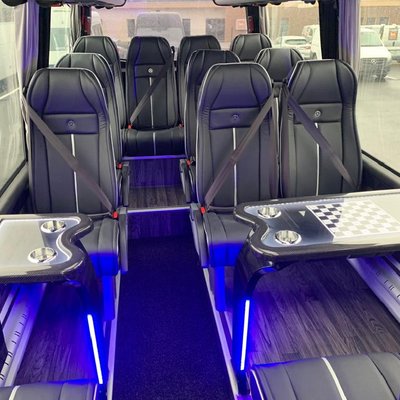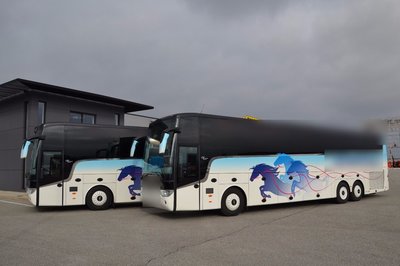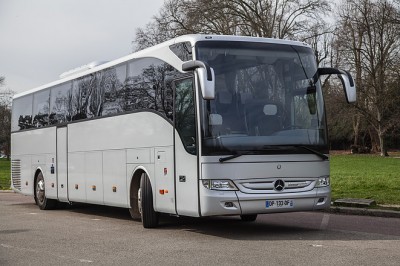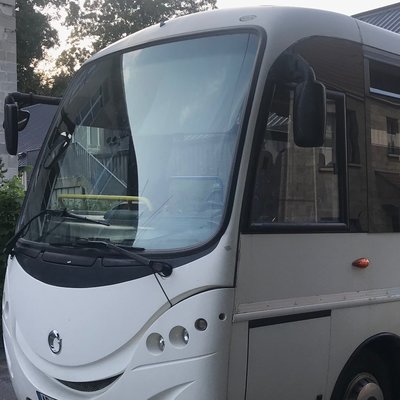Coach providers
Are you a coach provider and would like to receive scheduled trip requests in advance? Sign up!
Presentation
Coach providers provide collective transport, with busses with a minimum of 9 seats and a maximum of 90 passengers. They either provide a public transport service (under the relevant country's government authority), or a private transport service.
Coach providers work with tour operators, travel agencies and other private clients for occasional services (tourism, events, transfers).
Their journey can be set from their pick-up area to any points in the French national territory or in a foreign country.
The benefits :
- Personalised service
- Large range of vehicles (minibus and coach) and services
- Economical
- Comfortable for long distances
Safety
The profession
Coach providers must be in possession of a Community Transport License to carry out their business.
Their road map is established as part of the booking contract.
These companies must of course be subscribed to an insurance for transporting passengers in return for payment.
Their drivers must hold a French category D driver's license. The validity of a category D license, is only extended after a medical examination (every 5 years for drivers under 60 years old and every year for drivers over 60 years old).
The driver's working hours are strictly regulated.
Coaches must not exceed 90km/h on roads and 100km/h on motorways if they have ABS.
Reservation and Price
Coach providers are not restricted in terms of pricing, therefore prices can vary following the provider. They are therefore free to quote their services and prices as part of the booking contract with the client.
There are 2 ways to book a coach provider :
- Either by contacting the driver directly.
- Or by using monTransport.com
Using monTransport.com gives the opportunity to compare prices between different service providers and to select the best one according to your needs.
The vehicle
According to the traffic rules in France, coaches are busses meeting characteristics defined by the French Transport Ministry's decree, providing transportation of passengers over long-distances and allowing the transport in seating positions. These public transport vehicles are categorised M2 (maximum weight less than or equal to 5 tons) or M3 (maximum weight greater than 5 tons). The connected coaches are made up of at least 2 rigid sections joined together by connecting sections, which allow for passengers to move freely. The rigid sections being connected in a permanent way and can only be disconnected by an operation requiring specific equipments.
There are numerous coach and minibus manufacturers with all sorts of vehicles on the market. The brands often used are IrisBus, Mercedes-Benz, Volvo and Scania.
A little history
Coaches and minibuses succeeded the horse-drawn wagon for passenger transportation. They were developed after the First World War during a time influenced by very strong regulation (rail-road coordination) and by the development of mass tourism with the creation of paid holiday (1936).
In 1937 the license to drive a coach or a bus became mandatory.
Following the interlude formed by the Second World War, a 1949 decree states that occasional transport services are those that are repeated at certain periods throughout the year, such as the tourist excursion services or which take place on the occasion of winter sports or of public events (sport related or others) repeated several times per year. The occasional transport services therefore contrast with one-off services such as transport services organised for mariage ceremonies or funerals.
Since 1982, the original national or community regulations profoundly modified the applicable set of legal rules for occasional services.
Two types of "occasional services" are outlined: services with the capacity of transporting more than 8 passengers (bus/coach providers) and services that can seat less than 8 passengers (light vehicles). The former require a "community drivers license" whereas the latter must hold a "national transportation license". Community transport is completely liberalised and even allows to take passengers abroad.
